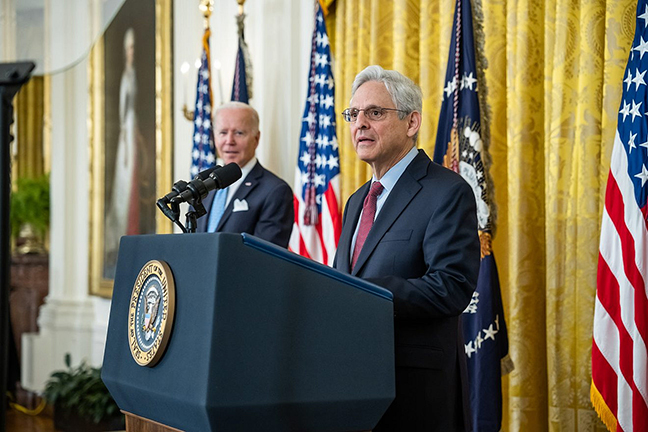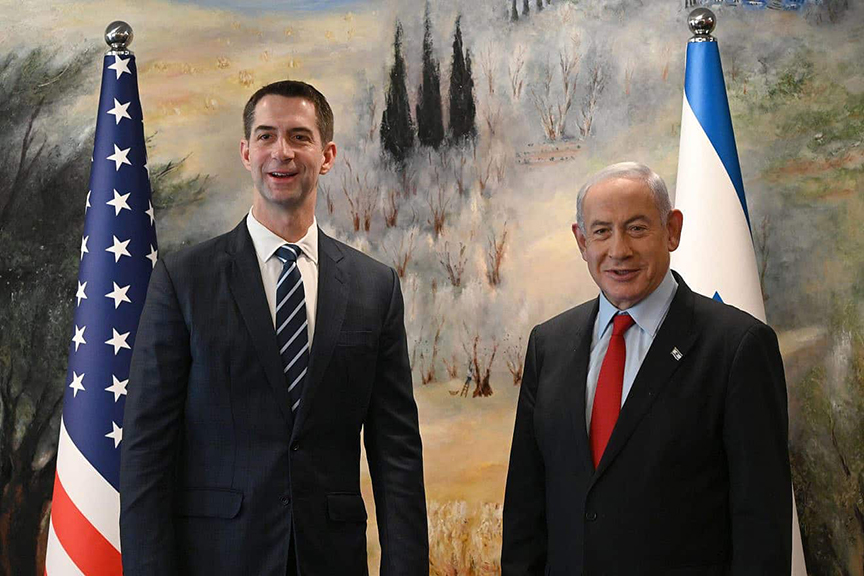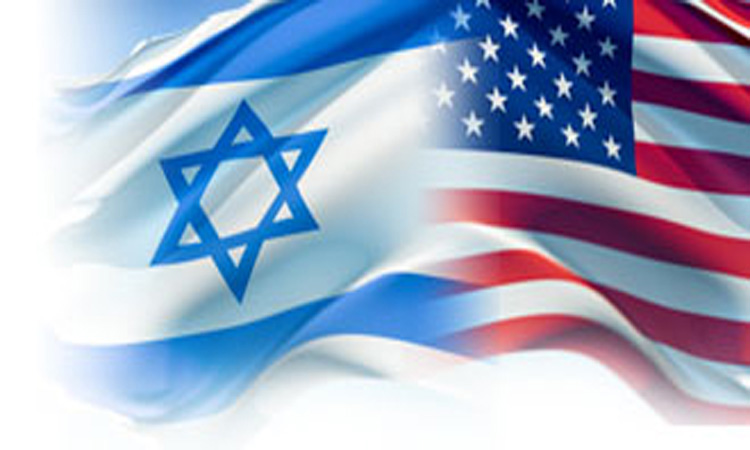Charges against Hamas in response to hostage murders were actually done seven months ago

U.S. Attorney General Merrick Garland delivers remarks during a Medal of Valor ceremony on May 16, 2022, in the East Room of the White House as U.S. President Joe Biden looks on. Credit: Adam Schultz/White House.
by Anna Rahmanana
(JNS) — When the U.S. Justice Department unsealed charges against six Hamas leaders on Sept. 3, the federal government appeared to respond to Israel having secured and identified the bodies of six hostages, whom Hamas terrorists executed, including Israeli-American hostage Hersh Goldberg-Polin over the weekend.
Merrick Garland, the U.S. attorney general, opted to unseal charges that had been filed seven months earlier because the Biden administration “needed to be seen as doing something” after Hamas “murdered an American citizen in cold blood,” according to Eugene Kontorovich, a professor at George Mason University Scalia Law School and executive director of its Middle East and international law center.
“Unless you read carefully, you might have thought that this was a response but, in fact, the only response was to leak something they did seven months ago,” he said, “which shows that they actually have no response to the murder of an American citizen.”
It is not uncommon for the Justice Department to seal charges in sensitive cases, according to Kontorovich, but in this instance, he thinks that the Biden administration was intentionally trying to mislead the public.
David May, research manager and a senior research analyst at the Foundation for Defense of Democracies, told JNS that the Biden administration has been reluctant to pressure Hamas.
“They are taking a carrot versus stick approach but, perhaps, the murder of six Israeli hostages, including an American one, convinced them to apply more pressure,” May said.
The Justice Department filed the charges against the six Hamas leaders, including the Oct. 7 massacre mastermind Yahya Sinwar, on the same day — Feb. 1 — U.S. President Joe Biden issued an executive order sanctioning “extremist settlers,” who he said were “undermining peace, security and stability in the West Bank.” (The Biden administration and some other countries and organizations refer to Judea and Samaria as the “West Bank.”)
The order “would apply sanctions on anyone engaged in violence or activities that destabilize peace in the West Bank but, despite dozens of murders paid for by the Palestinian Liberation Organization, no individual has been sanctioned and no leader in the PLO has,” Kontorovich told JNS.
Washington hasn’t sanctioned the PLO likely because “the reports that fuel the sanction program are by the United Nations,” the legal scholar said. “They may, at some point, sanction one or two minor Palestinians to try to diminish the legal objections, but this is clearly a program against Jews.”
The FDD scholar told JNS that the timing of the sanctions on Jews in Judea and Samaria may reflect the Biden administration’s attempts to appease left-wing Democrats, who have alleged that the White House favors the Jewish state.
“Since they are providing cover and support through weapons to the Jewish state, then they have to somehow show that they are attacking the Israelis in the West Bank and are therefore a neutral and fair party in this process,” May said.
May told JNS that the Biden administration should not be drawing comparisons between Hamas, a U.S.-designated terrorist organization of nearly 27 years, and a close U.S. ally.
“It’s problematic because Hamas’s methods and means of destruction in no way should be mentioned in the same sentence as what the minority of Israelis is doing in the West Bank,” May said. “Those individuals are problematic and Israel needs to contain and deal with them, but it’s pretty strange for the administration to be placing sanctions on citizens of an ally state.”
“It draws false parallels and ignores what is going on in the West Bank,” May said.
Although it used to be seen as anathema for Washington to sanction Israelis, “now, they have broken the taboo,” May said. “It gives a green light for other nations to do it.”
Kontorovich thinks that the Biden administration has appeared to go soft on the Hamas terror organization in recent months as a tactic to win re-election, by showing the public that the United States was able to mediate by becoming the diplomatic force behind a deal.
“They have a strong electoral reason for wanting the war to end, so they can claim a political accomplishment that will not cast a shadow on the election,” he said. “It’s clear they don’t want Hamas to win, but it’s also clear they don’t want it to lose.”



